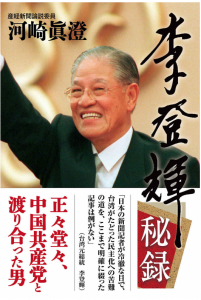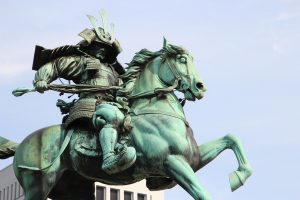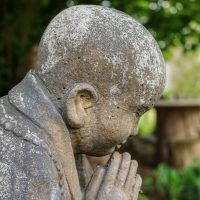Today, I would like to spend some time to recall Lee Denghui, especially, his linkage to Japan.

Actually, it was in 2000 when I first visited Taiwan. I attended a seminar organized by Taiwanese institution with the support of the Lincoln Center in the US. Public officers who are responsible for property taxation in emerging countries came to the center and learned how to assess the property valuation. Japan had already established our own property taxation system, to contribute to enrich the contents as well as the seminar quality, our institution had been sending a staff there. In 2000, the institution which I belonged to sent me to the seminar. I demonstrated Japanese market practice and built up my precious network with those countries.
Around that time, a Taiwanese guy, who is specialized in property valuation, told me “Yuko, Japan is our model.” It was a very impressive phrase to me, as I had never thought about that Japan could be a model for other countries.
Not only from him but other Taiwanese staffs, I had felt the sense “well accepted”. Then I came back to Japan, I read an essay “Along with principle roads, cultural essay of Taiwan”, written by Ryotaro Shiba, who conducted an interview with Mr.Lee Denghui.
My impression from that essay was Mr. Lee looked like a Japanese, I wish I could see him one day… He had been in very important position in Taiwanese politics and was very fond of Japan. Therefore, Taiwanese people eventually shared Lee’s mindset and respect to Japan.
I have several Taiwanese friends and I have always found that Taiwan is one of the countries who love Japan. Thank goodness, I have been feeling very glad that we have a country like Taiwan in our Asian domain.
I have also read another interview record of Lee Denghui. I would like to share my views on Mr. Lee’s backbone: where his respect towards Japan came from. This may provide hints to non-Japanese who wish to success in their business in Japan.
I found the following points to be noted.
1 Intention of the educational system
2 Martial art, Bushido, Japanese ethical codes
3 Honesty, Sincerity, efforts, and determination
4 Flexibility of Japanese represented in Jyudo
1 Intention of the educational system

Mr. Lee as well as other Taiwanese who got education under Japan’s dominance appreciated Japanese educational system. Some countries are reluctant to provide educational systems in colonies. My Brazilian husband sometimes complains that Brazilian government intentionally provide little education to people as they are afraid of people’s becoming educated. If they got educated, they will definitely consider fighting with the government. People may grow as the thread against the colony government. Therefore, they never think about having people educated.
However, Japanese government was different. Japanese were generously provided wide variety of education to the people indigenous to the region. Mr. Lee was impressed with that system, and he was keen on absorbing many kind of knowledge over various subjects.
Mr. Lee never thought about betraying Japan by using the education rather, he eventually influenced Taiwan people to be a Japanese supporters. I personally feel that taking something from others to take advantage of them eventually end up getting robbed. Taker ends up as being taken. On the other hand, givers are always the one who are given. Mr. Lee’s episode shared this kind of message.
2 Martial Art Bushido

Mr. Lee learned Kendo, Japanese fencing. Actually, many people agree that fencing, wrestling, boxing, all those are kind of sports. In Japan, there are some arts called Jyudo, Kendo, Aikido, and also some other arts: Kado and Sado. When we use this word “Do”, this means a way, it is a metaphor of a philosophy.
Jyudo means a philosophy of flexibility.
Kendo means a philosophy of Samurai worrier.
Aikido means a philosophy of creating a harmony.
Mr. Lee had a good exposure to such philosophy and through Kendo practice, he got to learn Japanese mentality, mindset, and our values.
Mr. Lee was very much impressed with Bushido, which is the idea released by Inazo Nitobe, who first introduced this idea to the Western world. In Japan, we did not have any specific religious value which ethically governed us, Japanese. Nitobe thought that our ethical values fundamentally came from Bushido, the philosophy that Samurai worriers followed and highly valued.
3 Honesty, Sincerity, efforts and determination

Mr. Lee referred Yoichi Hatta who designed a large scale of irrigation project and devoted himself to the completion of the project. From his commitment, Mr. Lee learned that Japanese are the people who diligently work hard, commit themselves to the execution of the project, and maintain the endeavor with great compassion, sincerity, honesty, and energy. This is Mr. Lee’s impression towards Japanese. As a Japanese, I feel the same, working very hard, chipping out daily efforts to the goal, create harmony among people, with showing our compassion, honesty, sincerity, all those virtues.
As Mr. Lee mentioned, its pity that some Japanese forget about such values and do not conduct our responsibilities properly. I would really like to be the one whom Mr. Lee met during his time in Taiwan and Japan. Under new normal brought by COVD-19, I think this is the only one value that we can maintain and leads us to the peace and conformity.
4 Flexibility of Japanese represented in Jyudo

“Jyu” means soft and flexible, and Jyudo means the art / philosophy of flexibility.
I often use the example of bamboo. When the snow piles up on bamboo leaves, it never gets broken, rather it is flexibly bent with resilience and slip the snow down or bounces back the snow with resilience. Through Jyudo, we have to learn this kind of flexibility. If we stick with our own positions or ideology, we never demonstrate any flexibility. We create conflicts and this would eventually get you/your counterparts hurt or broken.
Taking into account above flexibility, Mr. Lee learned a lot of such philosophy in flexibility and demonstrated in his policies. I personally feel sorry that almost no Japanese politicians can demonstrate Japanese philosophy in their policies as did Mr. Lee.
Further queries or doubts, please email to ytomizuka@abrilsjp.com
News Letter subscription is here
- Tags
- education, fencing, Japan, jyudo, kendo, leadership, Lee Denghui, martial art, martial rt










